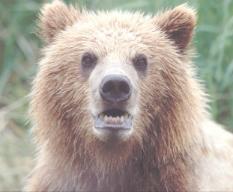If you are like me, you got yet another couple inches of snow last night. Many of us worry how the wild animals are doing with the unusual amount of snow we have had this winter. According to many experts, including the Washington State Department of Fish and Wildlife, feeding wildlife in winter does us more good than them.
Many people, myself included, consider the seed they put out for birds to be crucial food to get them through the winter. On the contrary, only about 1/5 of a birds winter diet comes from bird feeders. Some feeders can even do more harm than good if they are not cleaned regularly and are spreading diseases. The best things we can do are to provide high quality habitat full of natural foods. If you love the interaction of watching the birds and still want to feed them be sure to keep the feeders clean and check them daily for wet or molding feed, and place feeders away from hiding cover for cats. Or, provide seed and water just during particularly bad weather.
Experts in Cornell University Lab of Ornithology's Project FeederWatch, which collects winter bird feeder use data from volunteers across the country, say most bird feeding does neither significant good nor significant damage. It's something we do for ourselves. But it's a great educational opportunity for us.
If you have thought about feeding the deer or elk consider these potential problems:
- Concentrating deer and elk at a feeder can create problems by making the animals more vulnerable to disease, predation and poaching.
- Inviting deer into your yard could, in turn, invite the deer's predator, cougars, into your area also.
- If feeding areas draw animals across well-traveled roads, they are more likely to present a safety hazard and be hit by motor vehicles.
- Deer and elk drawn to artificial feed also can damage nearby agricultural areas, trees, or landscaping, especially if the artificial feed supply is not maintained through the winter.
In addition, the type of feed can make a life or death difference for deer and elk. If you put out grains their digestive systems can't digest, they will eat themselves silly, while starving. Deer and elk need the proper kind of bacteria in their gut to digest specific types of food. If they are used to eating browse (winter twigs, shrubs, forbs) they won't have the ability to digest grains until the bacteria make the adjustment. Depending on the animals' fat reserves, they might starve while waiting this period out, even though their bellies are full.
The best thing you can do for all winter wildlife is trying not to disturb them. They only have so much reserve, and the flight response requires a big output of energy. Keep your cats away from the bird feeder, keep your dog on a leash when you hike through the woods, and slow down in your vehicle when traveling through deer or elk country. We can all make an effort to maintain quality habitat for wildlife to live, ensuring that they have the food and shelter they need year-round.
Check out these links for more information:
http://wdfw.wa.gov/factshts/wintfeed.htm
http://www.paws.org/wildlife/resources/fact_sheets/feedingwildlife.php
http://extension.unh.edu/news/feedeer.htm
Julie L. Hopkins, GBOP
skip to main |
skip to sidebar

"News about bears, and activities of the GBOP team as they promote an accurate understanding of grizzly bears and their recovery in the North Cascades Ecosystem through community education and involvement."
About Us

- The GBOP team
- The Grizzly Bear Outreach Project (GBOP) provides education and community outreach about Grizzly Bears in the North Cascade Ecosystem (NCE) of Washington State. This includes information about grizzly bear ecology and behavior, sanitation and safety in bear country, and policies associated with the recovery process. The project engages community members in a process of education and rational, multi-party dialogue that targets people living, recreating, and working in the NCE. It provides a non-advocacy setting for residents to make well-informed opinions on grizzly bear recovery, perceptions and attitudes towards bears based upon accurate information. Over the last two hundred years, the number of grizzly bears (Ursus arctos) has declined from an estimated 100,000 individuals in the lower 48 to around 1100. The grizzly bear was listed as a threatened species by the U.S. Fish and Wildlife Service in 1975 and six recovery ecosystems have been established since that time. The North Cascades Ecosystem (NCE) in North Central Washington is the largest grizzly bear recovery ecosystem. Less than 20 grizzly bears currently live in the NCE. photo credit: Chris Weston